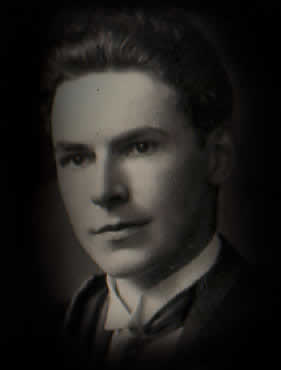 Often referred to as “Willie” Soutar, he was a renowned Scottish poet of the early 20th century who wrote in both English and a variant of the Scottish language called “Braid Scots”. Besides writing a great deal of standard form poetry Soutar was well known for his epigrams – short, often humorous or satirical statements that were written to engage a reader’s interest without the commitment of a longer read. These short verses would be no more than five lines and the style is also known by the name “cinquain”. This form of writing originated in Japan, and it was known there as “haiku” or “tanka” verse.
Often referred to as “Willie” Soutar, he was a renowned Scottish poet of the early 20th century who wrote in both English and a variant of the Scottish language called “Braid Scots”. Besides writing a great deal of standard form poetry Soutar was well known for his epigrams – short, often humorous or satirical statements that were written to engage a reader’s interest without the commitment of a longer read. These short verses would be no more than five lines and the style is also known by the name “cinquain”. This form of writing originated in Japan, and it was known there as “haiku” or “tanka” verse.
William was born in April 1898 in the Scottish coastal town of Perth. He was the only son of a master carpenter while his mother was also a poet. His education at the Perth Academy was interrupted by the outbreak of the First World War. He had been showing early literary talent at the Academy and many of his early poems were published in the school magazine. William joined the Royal Navy in 1916 and, unusually for a young man, he developed a chronic form of inflammatory arthritis known as ankylosing spondylitis. He was suffering badly with it when his naval service ended in 1918 and it would eventually develop to the stage where he was completely immobilised by the disease.
His post-war years though were spent studying at the University of Edinburgh. He was initially there to study medicine but soon switched to English, which was more in keeping with his talents as a writer. By 1923 his first collection of poetry was published with the title Gleanings by an Undergraduate. Contemporaries at this time were Ezra Pound and Hugh MacDiarmid and it was the latter whose writing in a Scots dialect probably influenced Soutar to do the same.
As was seen in other countries, a Literary Renaissance occurred in Scotland and Soutar was very much a leading light of this movement. His work was of such a high standard that future commentators on poetry described him as “one of the greatest poets Scotland has produced”.
He was well known for his poetry aimed at children, referred to as “bairn rhymes”, and these seem to have been inspired by the adoption, by his parents, of a five year old girl in 1927. This work was collected and published in 1933; Soutar called it Seeds in the Wind. Here is an example, called Bed Time, written in the Scots dialect that he so favoured:

It was remarkable that he was able to continue working as he had already become bedridden with the debilitating disease mentioned above. Additionally he had contracted tuberculosis in 1929 and he never recovered from this. He was still living at home and his father tried to make life as comfortable as possible for his ailing son. He built a large, picture window which gave Willie a wide ranging view across the gardens to the hills beyond. He entertained visitors here, many of which were fellow writers, and he always tried to dress smartly despite his illness. From his sickbed he wrote a moving journal outlining his woes called, not surprisingly, The Diary of a Dying Man. This was published after his death.
William Soutar died of tuberculosis on the 15th October 1943, aged only 45

